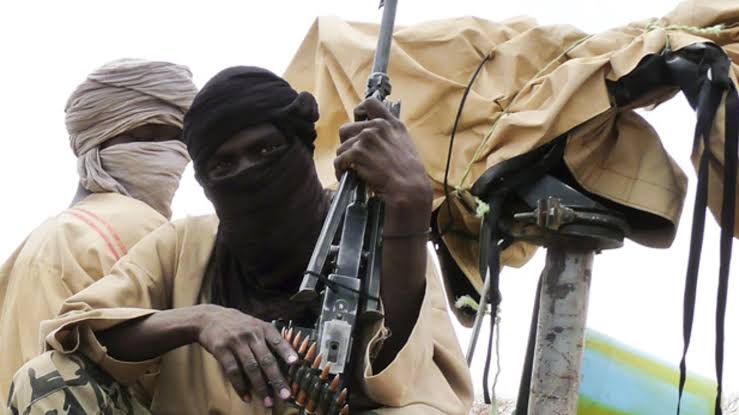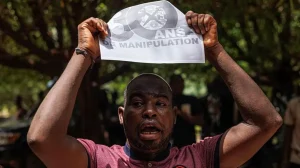
An attack attributed to jihadists in central Mali resulted in the deaths of more than 20 civilians on Monday, according to local officials, marking another violent incident in the troubled Sahel region.
For over a decade, Mali has been plagued by jihadist groups and other armed factions, with violence becoming particularly severe in the central part of the country since 2015. The recent attack took place in the village of Djiguibombo, located several dozen kilometers from Bandiagara.
“At least 21 civilians have been killed,” an official from the provincial authority reported on Wednesday, attributing the assault to jihadist militants. Another provincial official and a local youth representative estimated the death toll at approximately 20. All sources spoke anonymously due to security concerns and their positions. Since the junta’s takeover in 2020, such incidents are typically not publicly disclosed.
The attack, which began before nightfall and lasted about three hours, left many residents dead, with more than half of the victims being young people. According to the youth representative, some victims had their throats cut, while others were shot. The local Dogon ethnic group’s main organization, Ginna Dogon, reported that the attackers looted homes, set fire to a health center and motorbikes, and stole livestock and supplies.
“This attack is the latest tragedy in a dark series that the Dogon country has been going through for several years, with daily attacks on villages, farmers in the fields, killings, and kidnappings,” Ginna Dogon stated. Many inhabitants fled towards Bandiagara, while those who remained were unable to properly bury the dead.
Escalating Violence
Mali has been struggling with various factions affiliated with Al-Qaeda and the Islamic State group since 2012. The violence escalated in 2015 with the emergence of Katiba Macina, an Al-Qaeda-affiliated group led by Fulani preacher Amadou Kouffa. The deteriorated security context and lack of reliable information mean that attacks often take time to be confirmed.
Jihadist groups impose pacts on local populations, allowing them to continue their activities in exchange for taxes, adherence to Islamic rules, and non-collaboration with the Malian army or other armed groups. Non-compliance often results in retaliatory measures.
The violence has spread to neighboring Burkina Faso and Niger, prompting military regimes to seize power in all three countries. Thousands have been killed, and hundreds of thousands displaced by the ongoing conflict.
Since the 2020 coup, Mali’s military rulers have severed their anti-jihadist alliance with France and European partners, instead aligning politically and militarily with Russia. The junta has engaged what it describes as Russian military instructors, widely believed to be mercenaries from the private Russian company Wagner. Despite these changes, Bamako regularly asserts that it has gained the upper hand against both jihadists and separatists in the north.








